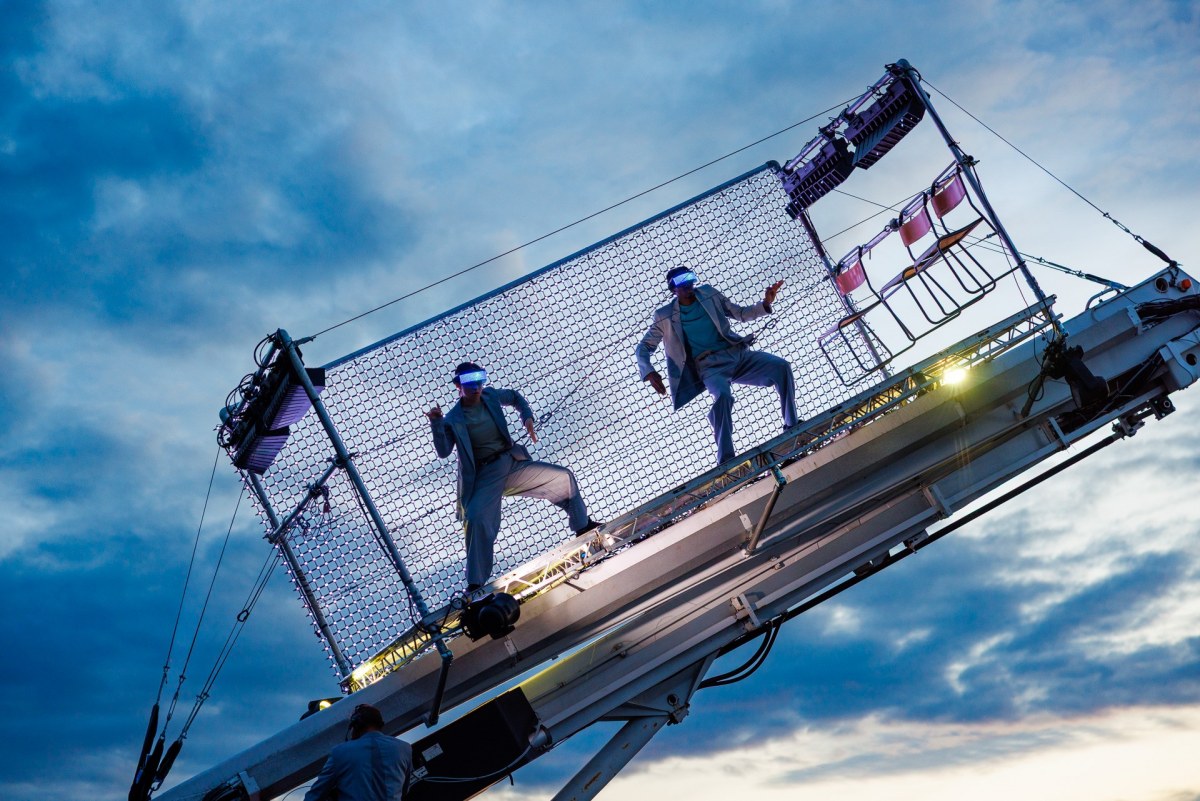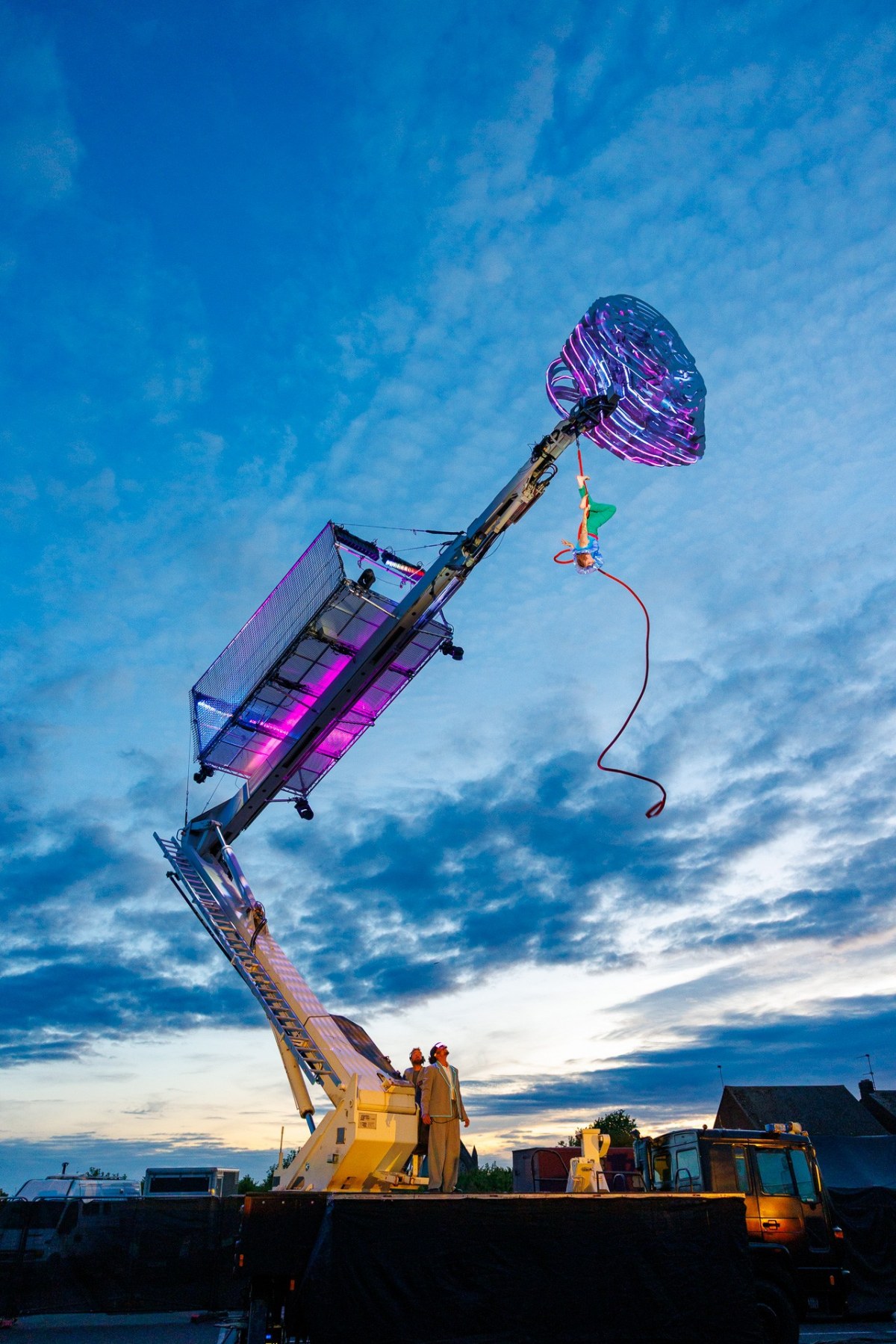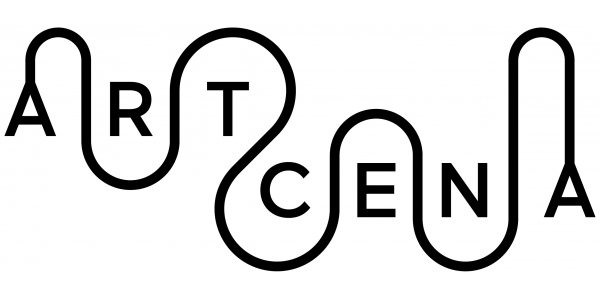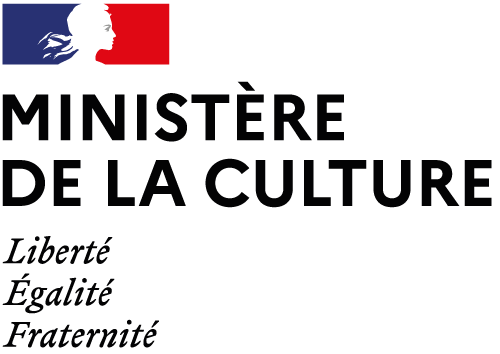FRESH STREET #5 - series of articles: Interview with Ezra Trigg, Director of the UK-based collective Gorilla Circus
In this interview, we meet Gorilla Circus, a UK-based company renowned for pushing the boundaries of contemporary circus through large-scale outdoor spectacles and innovative structures. Since its founding in 2009 by Ezra Trigg, the company has explored the intersection of movement, technology, and engineering, creating performances that challenge both artists and audiences to see circus in new ways. Their latest production, AI.thentic, continues this trajectory: a gravity-defying stage that tilts, rotates, and soars up to 20 metres becomes the setting for a cautionary tale about human connection in the age of artificial intelligence. Blending circus, street dance, theatre, and digital storytelling, AI.thentic invites us to reflect on how technology shapes our relationships, our vulnerabilities, and our sense of reality. This interview is part of a series of artistic interviews published linked to FRESH STREET #5, the international conference for the development of outdoor arts, co-organised by Circostrada and Out There Arts, in the frame of the Out There Festival in Great Yarmouth in May 2025.
What drove your artistic approach in the making of AI.thentic?
As a company, we have always been interested in the intersection of movement and technology, how the human body can work with and respond to mechanical and digital machinery to create something new and innovative.
We had previously been working on the concept of taking humans in motion and changing the audience’s perspective of the movement. For our show RPM we built a giant 6x2m treadmill that can move 5 performers at speeds up to 20mph, enabling us to take disciplines such as rollerskating, street dancing or acrobatics that audiences are used to watching traveling across a stage and root it to one spot. The movement completely changes, it becomes almost hypnotising, and allows the audience to analyse the artist almost in slow motion. All of the small intricacies become visible.
It made sense for us to continue this journey into AI.thentic. Through the creation process of RPM we started working with some amazing UK-based street dancers and street dance choreographer Brooke Milliner. I was keen to keep those collaborations going, the UK has an amazing street dance scene with some incredibly talented individuals, but a lot of that talent hasn’t been visible in outdoor arts in a significant way. Bringing street dancers to work with circus artists, theatre makers and technologists we created this critical mass of cross pollination that enabled some really special moments to come out on stage.
Whereas in RPM the movement motivation was “we want to change the audience’s perspective of motion”, in AI.thentic it was “we want to change the audience’s perspective of gravity”. By creating a stage that could lift to 20 meters, tilt almost vertical and rotate 360 degrees we were able to reduce the effect of gravity on the performers and also change how they used gravity in their disciplines, for example the artistic choice of whether the body stands at 90 degrees to the floor or what movement potential happens at 45, or 60 degrees!

Why did you choose to explore human connection through the lens of AI, and how does that shape the story of A.I.Thentic?
The growth of AI has been exponential in the last few years, it’s even offering to help me write this interview as a type! We are fast approaching a point where it will not be possible to discern whether what we see online and more importantly who we talk to is real or machine generated. That takes us into some really interesting ethical questions about what we want our relationship with technology as a whole to be, especially as we are becoming more isolated from each other in society. If for example someone forms a close friendship with an AI character online is that less meaningful than a human online friendship? There’s also some really important questions to be asked about who controls AI systems, who controls that data and what the motivations of these companies are.
In AI.thentic, we explore these questions through our protagonist, Loki, an isolated young man in a new city who has recently ended a relationship. Struggling to build meaningful connections and friendships, Loki finds himself increasingly interacting with TAM, a Siri/Google like AI app on his phone. As his conversations become more meaningful, TAM convinces Loki that he is disconnected from society. Loki is persuaded to don a VR headset and join the Digiverse- a digital world advertised as the best way to make friends and build community. In this surreal digital universe Loki embarks on a journey to find genuine connection, he meets a cast of characters, friends and love interests- but is it all as it seems? Loki finds himself questioning the motivations of the digiverse when he finds himself being served increasingly personal adverts for products based on his most vulnerable conversations with TAM and his new digital friends. Has Loki connected with an online community and made friends? Or is it all just a plot to extract his personal data for marketing purposes? Are any of the characters he interacts with real or does he feel connection because they are all just telling him exactly what he wants to hear? Most of all- if he can’t tell the difference then does it matter?
AI.thentic is a cautionary tale in that regard, and a reminder that (for now at least) AI is only occupying the digital world. There’s a whole world of humans out there if you turn your eyes away from the screen!

In your work, the structures are more than scenery, what role do they play in your creative vision?
Especially in the contemporary circus world where disciplines can be set and rigid, true innovation can be hard to find. Our structures are our way of breaking the mold, enabling audiences to experience shows in new ways, taking artists and literally moving the floor beneath their feet to fundamentally change how they approach their discipline and drive innovation. The structures break down barriers and immerse the audience in our world. Once after a hard day of coordinating dancers 8 meters in the air at a 45 degree angle, our choreographer Brooke turned to me and said “For once can’t we just do a show on the floor?”, “Yes you can” I said “ But you don’t need me for that!”.
When I think of our creative vision, I try to remember that conversation. I have a huge amount of respect for artists who can take a black box or a plain stage and create something magical as it’s something I would struggle with, however I’ve come to realise that we all have our place and our roles to play in the creative landscape, and mine seems to be linked to these crazy machines!
Why was it important for you to premiere A.I.Thentic at the 2025 edition of the Out There Festival? And how is the FRESH STREET #5 international conference for the development of outdoor arts meaningful or relevant to your practice?
We've been very lucky to have been supported and mentored by Out There Arts in our creative journey as a company, they have been involved in some capacity in every one of our productions since 2016. Out There Festival is a great place to premier and preview work, they have a great mixture of technical knowledge, friendly audiences and a professional program that we’ve found really useful in terms of getting new work noticed.
FRESH is always a great way to pull yourself out of the everyday of your creative practice and to immerse yourself in meeting new people, expanding the scope of your creativity and think about the questions that you never knew needed asking. To run a creative company and to be an artist can be a lonely occupation so to meet and talk to so many throughout Europe and the world who experience the same triumphs, failures and challenges is a refreshing and rejuvenating experience.

Ezra Trigg is the Director of Gorilla Circus, a UK based circus company with a mission to innovate, improve & increase access to high quality contemporary circus & spectaculars through international collaboration, the professional training of UK based artists & cross pollination of disciplines. Gorilla Circus was recognised as a National Portfolio Organisation by Arts Council England in 2023.
Ezra is a former circus performer, having spent most of his early career working with ground based circus acts and later becoming a catcher on the flying trapeze. After founding Gorilla Circus in 2009 he started to use his knowledge of creative rigging and acrobatic equipment design to direct and produce large scale outdoor circus spectaculars.






write us: infocircostrada@artcena.fr